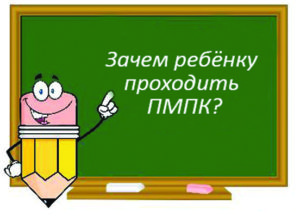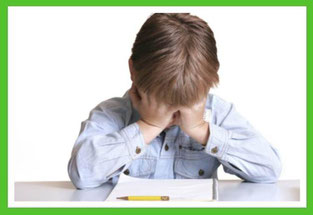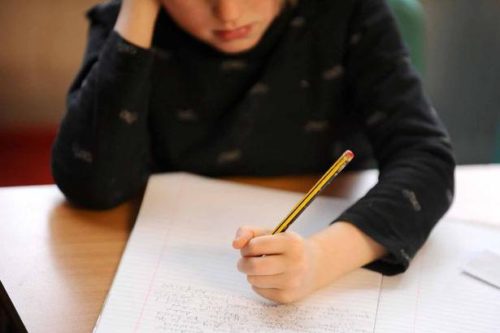Pmpk 5 years of perception features. Identify the level of speech development. Identifying ideas about yourself and others

The results of the examination of the child are discussed by PMPK specialists. Parents (legal representatives) and the child are not present. Based on the results of the diagnosis, a collegial conclusion of the commission’s specialists is drawn up, the type of educational institution, the child’s training program and recommendations for its further development are determined. Such a conclusion can be submitted both to the education authorities (as the basis for sending the child to an educational institution), and to the institution to which he is sent (as the basis for enrolling him in this institution and the guidelines for organizing remedial work with him). With the conclusion of the PMPK, the initiator of the referral of the child for examination of the PMPK should also be acquainted. However, the full conclusion to the initiator of the appeal can be transmitted only with the consent of the parents. In case of contradictions between the PMPK specialists regarding the assessment of the child’s condition and recommendations for further development and training, compromise decisions are made in favor of more favorable conditions for the child’s further upbringing. In such situations, diagnostic periods of study and re-examination in the PMPC can be recommended in order to control the dynamics of the child’s development and possible adjustment of recommendations. The term of re-treatment is always individual and corresponds to the psychological, pedagogical and medico-social indications.
The main commission consists of: a psychiatrist, a teacher-defectologist, a speech therapist, a teacher-psychologist, since the study of the child includes both medical and psychological-pedagogical examination.
Medical examinationusually begins with an examination of the history data. Medical history is carried out by a doctor and is made on the basis of an exhaustive acquaintance with the child's documentation and information obtained from a conversation with his parents. Medical examination and diagnosis is the business of doctors. Neither the pathologist, nor the psychologist has the right to assume the mission inherent to them. Although they need to know how the factors of the physical and mental state of the children being examined influence the development of the child. Data on the child's development, obtained by the doctor during a conversation with the mother, as well as objective indicators of the child's condition based on medical findings will help you choose a strategy for psychological and pedagogical examination. So, when hearing loss or speech disorders in a child is mandatory during the examination is the use of non-verbal tasks. In case of visual defects, the examination is based primarily on speech material.
In progress psychological and pedagogical examination features are revealed mental development child; the degree of his self-service and communication skills is determined, the state of motility, etc. is determined. It is obligatory to study not only individual mental processes, but also the personality as a whole.
If children have not studied yet, then it is necessary to determine their readiness for school, that is, to establish the level of their mental development, emotional-volitional and social maturity. Before entering school, a child may have a certain amount of knowledge and ideas about the world around him, he must have such psychophysical and mental functions as voluntary attention, meaningful memory, spatial perception, properly developed motor skills. Tomorrow's first grader needs to be able to perform certain mental operations, have verbal communication skills, etc. In cases where children have already attended school, the nature and causes of their difficulties in learning should be established, their causes should be revealed and the degree of seriousness of a defect should be ascertained. It is necessary to pay attention to learning ability, ability to generalized thinking activity, flexibility of thinking processes, pace of learning material learning, ability to respond to outside help. Pedagogical and psychological examination is carried out by a defectologist and a psychologist.
Speech therapy examination in cases where there is a need for it, performs a speech therapist. Identifying features of speech development, he reveals the nature and causes of the existing defects. The complex of speech therapy examinations includes an articulation apparatus, an impressive and expressive speech. The written speech of children and speech memory is investigated. Speech therapist needs to identify the structure of the speech defect and to establish the degree of speech underdevelopment of children.
Each member of the commission performs a special function, although the conclusion of the commission is naturally the result of the work of all specialists and is based on a thorough analysis of information about the child.
Diagnostic methods for PMPK
To assess the severity of mental underdevelopment of children from 3 to 9 years old in the conditions of PMPK, standard psychodiagnostic methods are used. “A standardized set of psychodiagnostic methods for children of a certain age means the minimum set of methods included in it, necessary and sufficient to assess the psychology of children of a given age in all essential qualities and properties, to determine the level of psychological development of the child as a whole and on individual qualities and properties, ”says one of the methodological manuals on psychodiagnostics.
Diagnostic material for the study of each child is selected individually.
Age 3-4 years
The development of mental processes (memory, attention, thinking, perception)
Copies a cross, reproduces a circle, a horizontal line, etc.
Selects the longest line of the three proposed.
Folds a split picture of 2-3 parts.
Counts up to 3-4.
Folds the board of Segen (from simple to more complex).
The folding of the pyramid (starting with 3 rings).
Correctly names and finds the primary colors (valid - 3).
Identify the level of speech development
They recite poems, sing songs.
They correlate objects by size (large - small), by quantity (one - many).
Describe items.
Use in speech qualitative adjectives (weather "sunny", "warm", "frosty", etc.), verbs (the sun "shines", "heats"; birds "fly away", etc.).
Distinguish and call parts of objects.
Understand the general concepts of toys, clothes, shoes, dishes, furniture.
Show and name animals.
Identifying the level of development of fine motor skills
Fold a sheet of paper four times (after the show).
Button buttons, lace up shoes.
They are able to draw elementary objects.
Spread from geometric shapes objects house, car, toy.
Identifying ideas about yourself and others
Fully name their first name, surname (although perhaps vague pronunciation) and age (shown on fingers).
Call family members (by name).
Call and show parts of the body.
Emotional-volitional sphere
A set of cards with the image of emotions (2-3).
Contact of the child with adults.
Perfection and attention shifting.
Age 5-7 years
The study of perception and attention
Tables that show items with missing parts.
A set of cards with the image of geometric shapes, painted in basic and tint colors.
Segen's board (different options of complexity).
Different in size items (width, length, height).
Cut images (5 years - 4 parts; 6-7 years - 4-6 parts).
Orientation on a sheet of paper (left - right, bottom - top, middle).
Study of thinking
Counting operations within 10 (6-7 years - direct and reverse counting).
"4th superfluous" (in color, form, generic categories).
Tables with logical tasks to search for the missing pieces (by the type of Raven progressive matrices).
Forms of the techniques “Simple and complex analogies”.
Series of pictures depicting a sequence of events (3-4 pictures).
A set of plot pictures of different degrees of complexity (simple, descriptive, with hidden meaning, ridiculous content).
Tables with riddles, proverbs and sayings (selection based on age).
Calls his first name, surname, patronymic, age, gender, home address.
Calls family members.
Calls and "shows" the seasons and parts of the day.
The use of the questionnaire for children 6-7 years old (method of diagnosis of school maturity).
Speech Development Study
The use of generalizing concepts in speech.
The ability to classify items.
Drawing up a descriptive story on the picture.
Use in speech of nouns, adjectives, verbs.
Formation of diminutive forms of the noun, antonyms.
Coordination of numerals with nouns (one egg - five eggs).
The formation of possessive adjectives (whose tail? - "Lysis". Whose head? - "Hare").
Memory study
Visual memory: a set of pictures with the image of familiar objects (6-10).
Auditory memory: memorizing 6-10 words.
Retelling plain text.
Study of the development of emotional-volitional sphere
A set of cards with the image of emotions.
A set of plot pictures depicting various situations that are subject to moral evaluation.
Adequate reaction of the child to approval and reprimand.
Age 7-9 years
The study of perception, attention
A set of cards with the image of geometric shapes.
Cut picture from 6-8 parts.
Orientation in space and on a sheet of paper in a cage (graphic dictation).
Tables with images of objects to be drawn.
Method "Find differences" (in accordance with age).
Study of thinking
Tables with the image of 4 subjects (the didactic game “The fourth is superfluous”) of different complexity options.
Tables with Raven matrices.
A set of plot pictures of different degrees of complexity (simple, with hidden meaning, ridiculous content).
Series of pictures depicting a sequence of events (6-8 pictures).
Tables with text of different complexity.
Counting operations (the concept of numbers, the implementation of arithmetic operations, understanding of the course of solving problems).
Memory study
Tables with the image of familiar objects for the development of visual memory (there are various options for memorizing numbers, words, geometric shapes).
Auditory memory: memorizing 10 words.
Texts to play.
Speech Development Study
Retelling text.
Use in speech detailed statements. Study of the emotional-volitional sphere
Sets of plot paintings depicting various situations that are subject to moral evaluation.
Methods of self-esteem.
The study of ideas about themselves and others
Calls his first name, surname, patronymic, gender, age.
Names, middle names, surnames of family members, acquaintances, etc.
Questionnaire to determine the breadth of the horizon (What is the difference between an old person and a young person? Why do all cars have brakes?).
Study of the level of learning
Reading technique.
Sections of knowledge in mathematics and Russian language (in accordance with the curriculum).
It happens that the child has problems in learning, communicating with peers, overall development. In this case, parents can hear from teachers and psychologists that their child needs to go through a psychological, medical and psychological commission. PMPK Commission, what is this? The question may arise whether it is necessary to send a child to a similar consultation at all. To understand this should be in order to understand what will happen.
PMPK is a commission, in the process of which it becomes clear whether the researched person has specific diagnoses and insurmountable problems in studying according to the standard school curriculum. Often such diagnoses are:
- Mental retardation.
- CRA - mental retardation.
Important! Children are sent to a similar survey. preschool age students from 1 to 4 grade. At this age, it is already possible to determine whether there are obstacles to learning, what they are.
At PMPK they send teachers, memos, even the parents themselves, if they see that something is wrong in the behavior and condition of the child, although this rarely happens. On PMPK can confirm this diagnosis,. It is possible to get answers to the following questions during the course of the assignment:
- Will you be able to continue / start training in the general education program of the school.
- Will additional classes with a tutor, a correctionologist, a psychologist be required?
- What should parents do to help and eliminate / reduce problems identified during the condition check.
- What kind of training and program is suitable for this study.
Often, when parents are recommended to pass such a commission, they refuse. The reason for this is ignorance and misunderstanding of what is happening on it, its consequences. Parents are not always able to see and understand that there are problems in teaching their child. If you do not start working with the problem in time, and first determine it, then further adjustment may not help. Therefore, before you refuse, you should understand what happens during PMPK, and what are its consequences.

Who is on the commission?
Another important point is who is on the commission. It can be:
- Educational psychologist.
- The defectologist of the required profile.
- If the child is blind, then tifleptolog.
- Deaf-pedagogue for a deaf child.
- Speech therapist.
- Pediatrician.
- Neurologist.
- Ophthalmologist.
- Orthopedist.
- Children's psychiatrist.
- Social teacher.
Important! If necessary, the composition of the commission may be broader, it invites experts who can help determine the presence of a particular problem with physical or mental health.
We should not forget that the results of the commission’s activity are recommendations for parents, whether they listen to them or not, they decide.
Required documents
The day of passing the commission is determined in advance, so that parents can attend it. This survey, regardless of the number of invited experts, is free. Before conducting PMPK, parents / guardians, legal representatives, must provide this package of documents:
- Passport of parent / guardian.
- Child's birth certificate.
- Guardianship certificate, if the child is under guardianship.
- Extract from the pediatrician of form F-12, it shows the data on the development of the child.
- Health certificates from specialists: ophthalmologist, ENT, neuropathologist, psychiatrist, orthopedist.
- The characteristic from the tutor or the teacher from a position of the teacher.
- The latest workbooks in the Russian language and mathematics, if a student is sent to the commission. For preschoolers - 4 drawings.
Important! Certificates from doctors are drawn up, they must be the seal of the medical institution that issued the document. It is worth remembering that all certificates have a shelf life - most 1 year, from a psychiatrist - 6 months.

How happens PMPK
Mainly members of the commission sit in the same room. The formats of communication with the child may differ. There are such:
- All experts are located at the same table, and the subject is standing or sitting in front of them. This option is not very comfortable for the psychological state of the subject.
- Each member of the commission sits at a separate table, and the child in turn approaches them. This option is more comfortable and helps to better understand the condition of the child, as experts can also observe the behavior from the side. During communication with a member of the commission, the child may be nervous, which affects the results.
Regardless of the form used, the communication takes place in a question-answer format; certain tasks may be issued to help assess the condition. In any case, such commissions are not comfortable for the child, as the participants try to do their work as quickly as possible, rush the child, do not give him a break. By the time all about everything takes 1-2 hours. Since parents understand that they are expecting a child, they need to be prepared psychologically, to calm them down. If the questions are harsh, then the parents have the right to intervene in the process and protect their child, not everyone knows this right, so they are silent, but the child needs support from his own person, he will feel more confident.
Tip! It is advisable to take food and water with you so that the child will not even feel hunger.

Asked questions
In the course of the commission, the questions that will be asked are fairly standard, but it may differ slightly depending on the situation and condition of the child, the intended diagnosis. Sample topics:
- Story about yourself, your relatives, friends. Who are they, where do they live, what do they do, including the place of work, how old are they. Make a description of what the child does, how he spends leisure time with friends, what he does with his parents. It is necessary to indicate the data about your pets, what their names are, what they do with them, how they look after them. Why is this or that room in the house, what should I do there.
- They ask to tell about the world that surrounds them: measures of length, size, seasons, what is a weekend and weekdays. Understanding the shapes and sizes of objects, their location in space.
- Checked logic and generalization. To do this, the child is offered to combine different objects into one group, to choose an extra object. Why do I need this or that object, that with his help do. There must be an understanding of the parts of the body, the profession.
- Memory check. Words are heard in a rumor and asked to reproduce them, decompose the pictures in the proposed sequence.
- Speech is checked: how correctly it forms sentences, whether it sounds all sounds, whether word endings change depending on gender. They ask to name and explain what synonymy, antonyms, homonyms are.
- It is checked whether the child can tell about his desires, including natural desires, go to the toilet, wash his hands, eat.
- Also be sure to check the coordination of movements, the level of motor development.
As you can see, the questions and tasks will not be difficult for a child whose development is normal. But if problems exist, they can be identified. But not only is the task of the commission, because you need to understand why they arise.
Fact! Children whose native language is not Russian will probably have problems with the selection of synonyms and antonyms, proverbs and an explanation of their meanings. Moreover, their state of health, both mental and physical, level of development will not be low.

What to do with the results
Parents themselves decide what to do with the conclusions and results of the child’s testing. The verdict can be presented in one of these conclusions:
- The recommendation is studying in a regular school.
- Recommendation to go to training on special program or special school.
- Does the child need to work with a specialist to correct his condition?
It happens that the parents / guardians do not agree with the conclusions of the commission. Since its members decide which grades to exhibit, it happens that they are underestimated or deliberately inflated. If the results do not reflect the real state of affairs, the parent or guardian has the right to apply to the highest level commission. But you should not forget that the child will have to go through PMPK again, which may affect the psychological state.
Conclusion
The PMPK Commission is not the most pleasant event, both for the child and for many members of the commission. But it should be understood that in some cases, its timely passage will help the child to feel normal in society in the future.
P IPC is a psychological, medical and pedagogical commission, where complex diagnostics of a child takes place by various specialists in order to identify developmental disorders (usually speech disorders, mental retardation, mental retardation, visual impairment, hearing impairments, etc.) and determine the possibility or impossibility learning in comprehensive school (kindergarten).
Both preschool children and school-age children, as a rule, pupils of grades 1-4, are sent to the PMPC survey, because at this age it becomes clear whether the child has insurmountable obstacles to learning in a regular school or not.
Usually, the specialists of the kindergarten, the school or the parents themselves refer them to the commission when they think that the child should be trained in a different type of institution.
How is the examination for PMPK?
Parents with a child are invited to the commission on the appointed day. Typically, a meeting of the commission takes place in the same room, where a child is examined by several specialists at once: a psychiatrist, a psychologist, a speech therapist, a pathologist, parents. They ask questions and offer assignments to identify the level of attention, perception, thinking, speech of the child, to determine the emotional - personal characteristics and determine the causes of the violations found.
Preparing a child for the passage of PMPK.
Before passing the consultation, it is necessary to assemble a package of documents:
- extract from the history of the child's development (pediatrician);
- help ENT - doctor;
- help of the oculist;
- help of a psychiatrist (children from 4 years);
- certificate from a neurologist (children under 4 years of age);
- presentation of a speech therapist (speech pathologist);
- presentation of a teacher - a psychologist;
- the characteristics of the educator;
- 4-5 drawings
- passport of the parent (legal representative), birth certificate of the child.
- PMPP results
Based on the survey results, the commission prepares pMPK protocolwhich parents should be familiar with under the list. The signature on the protocol is put as confirmation of the fact that the commission was passed in the presence of parents (legal representatives).
The statement of PMPK will contain information:
- Does the development of the child age; if not, what is the diagnosis (for example, general speech underdevelopment, etc.).
- Recommendations for further education (for example, in a specialized group for children with speech disorders, etc.)
- Does the child need additional training sessions, speech therapy, treatment and supervision of doctors and psychologists.
What to do with the PMP discharge?
In the city district of Tolyatti, the following municipal budgetary institutions and kindergartens provide remedial assistance to children of preschool age with disabilities (special educational needs):
- MBU kindergartens №№ 73, 81, 92, 113, 126, 128, 143, 163, 195, 200, 16, 23, 33, 36, 69, 125, 138, 147, 151, 167, 196, 199, 25 , 41, 43, 45, 53, 54, 84, 90, 93, 104, 153, MBU NShDS No. 48, MAOU
- kindergarten No. 79, structural subdivisions of kindergartens MBU for secondary schools No. 3, 9, 18, 26, - children with speech disorders;
- MBU kindergartens №№ 5, 33, 56 - for children with visual impairment;
- MBU Kindergarten No. 43 - children with hearing impairment;
- MBU kindergartens №№ 53, 120, 125, 139, 180, structural unit kindergarten MBU school № 18 - for children with mental retardation;
- MBU kindergartens №№ 53, 120, 139 - for children with intellectual disabilities,
- MBU Kindergarten No. 120 - for disabled children with Down syndrome;
- MBU Kindergarten No. 79 –– disabled children with early childhood autism (RDA);
- MBU kindergartens №№ 5, 20, 26, 27, 116, 135, 147, 197, kindergarten MBU school № 26 - for children with disorders of the musculoskeletal system;
- 2 of them are MBU Kindergarten No. 197, the structural unit Kindergarten MBU School № 26 is for disabled children with cerebral palsy;
- MBU kindergarten № 112 - children with diabetes and other endocrine diseases.

 Live journal
Live journal Facebook
Facebook Twitter
Twitter